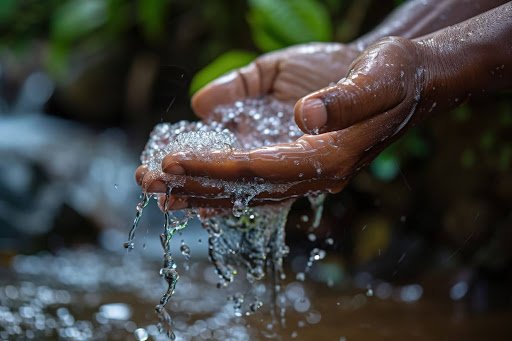Water is the lifeblood of agriculture, but the efficient use of this water has become a concern in recent times due to the increase in demand and scarce resources. For organic farmers, sustainable management of water is essential not only to maintain soil health but also to meet environmental goals. With the integration of sustainable agriculture technology, farmers can optimize water use while ensuring the safety of the ecosystem. Here are some of the most effective techniques for sustainable water management in organic farming.
Rainwater Harvesting
Rainwater harvesting refers to the collection and storage of rainwater for agricultural use. This technique reduces dependency on groundwater and surface water resources. Farmers can develop storage tanks or ponds that capture runoff and use the same during dry spells.
Advantages:
- • Reduces pressure on local water supplies.
- • Guarantees water availability during droughts.
- • Fosters an eco-friendly farming culture.
Rainwater harvesting is particularly effective when used in conjunction with other sustainable agriculture technology tools, such as soil moisture sensors, to ensure efficient use of water.
Drip Irrigation Systems
Drip irrigation delivers water directly to the root zone of plants through a network of tubes, emitters, and valves. This precise method minimizes water wastage and ensures crops get just the right amount of moisture.
Advantages:
- • Reduces water loss due to evaporation.
- • Prevents overwatering, which can harm crops.
- • Reduces the chance of weed growth and soil erosion.
For the organic farmer, drip irrigation will also aid in the equal application of organic manure, thus better crop development.
Mulching
Mulching is the covering of the soil with organic as well as inorganic mulches like straw, wood chips or plastic sheets. It helps the soil retain its moisture by conserving it and keeping cool temperatures.
Advantages:
- • Water is retained in the soil for a longer time.
- • Organic mulches improve soil fertility.
- • This reduces weed growth, further reducing competition for water.
Mulching is a very low-cost operation that fits organic farming very well.
Soil Health Management
Soil is like a sponge that absorbs and retains water efficiently. Composting, crop rotation, and avoiding chemical inputs help build up the soil structure, thus increasing its water-holding capacity.
Advantages:
- • Reduces water runoff and erosion.
- • Gives plants water consistently.
- • Supports microbial activity, which increases soil productivity.
Farmers can employ viable, sustainable agriculture technology, like soil moisture monitoring systems that track water levels and, thus, allow them to make informed irrigation decisions.
Recycled Water Use
At a time of freshwater scarcity, recycling treated wastewater for irrigation is an appropriate solution. This way, making sure the water does not contain harmful contaminants and serves as a sustainable alternative to traditional water sources.
Advantages:
- • Reduces reliance on freshwater resources.
- • Encourages resource reuse to avoid waste.
- • It allows year-round farming, even in dry regions.
Recycled water for farming must be of organic quality. That means it is safe and clean for crop production.
Cover Cropping
Growing cover crops like clover, rye, or vetch prevents soil erosion and increases the amount of water retained. Cover crops shade the soil from sunlight, hence preventing evaporation and keeping the earth moist.
Advantages:
- • Increase the soil organic matter, hence enhancing its water retention.
- • Prevents nutrient leaching, improving soil health.
- • Adds more organic matter upon incorporation into the soil.
Farmers can use the technology of sustainable agriculture and combine it with cover cropping to monitor the influence on water retention and soil quality.
Smart Water Management Systems
Organic farming is transformed with the integration of technology into water management. Smart irrigation systems coupled with IoT sensors and automated controls enable farmers to track soil moisture, weather conditions, and water usage in real time.
Advantages:
- • Ensures precise water application based on crop needs.
- • Reduces water wastage and irrigation costs.
- • Helps in planning and adapting to changing weather patterns.
These systems are essential for farmers looking to maximize efficiency while maintaining sustainability.
Conclusion
Effective water management is critical for the success of organic farming. Techniques such as rainwater harvesting, drip irrigation, mulching, and the use of sustainable agriculture technology enable farmers to optimize water use, enhance soil health, and reduce environmental impact.
At ASQI, we are committed to supporting farmers with innovative solutions for sustainable agriculture.







